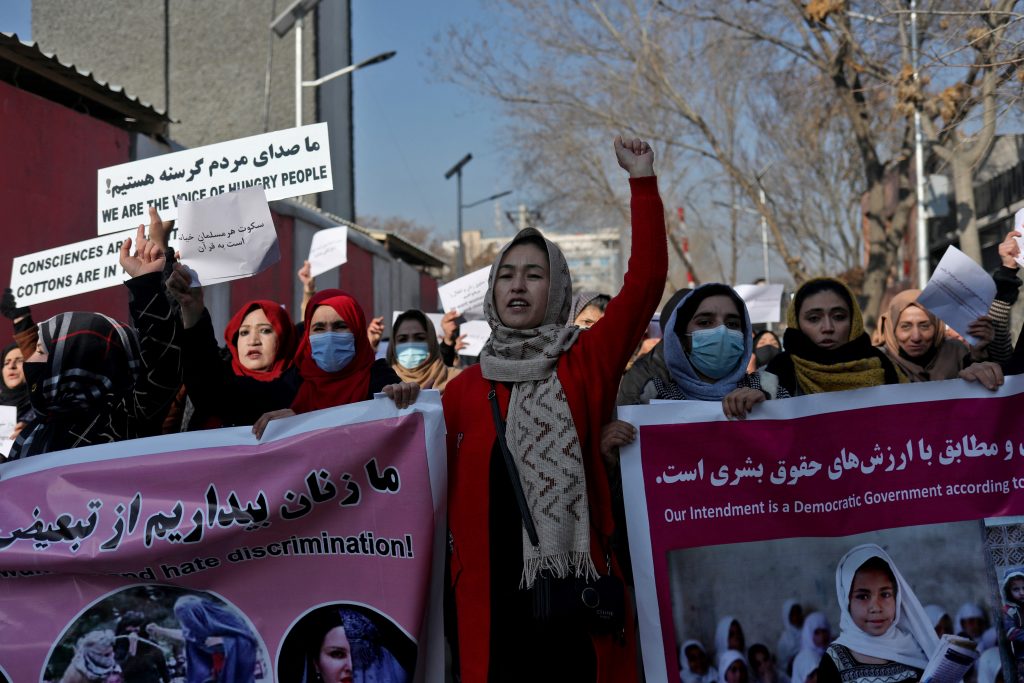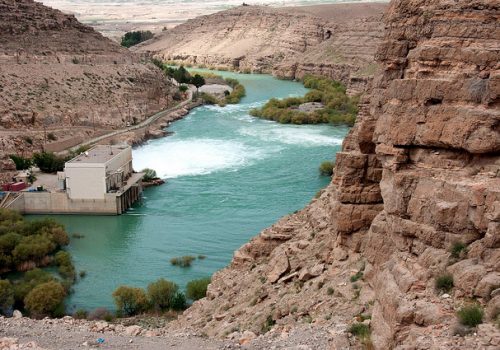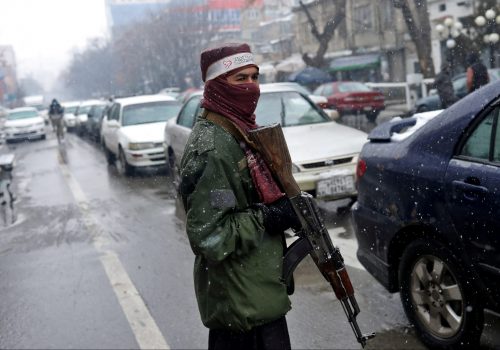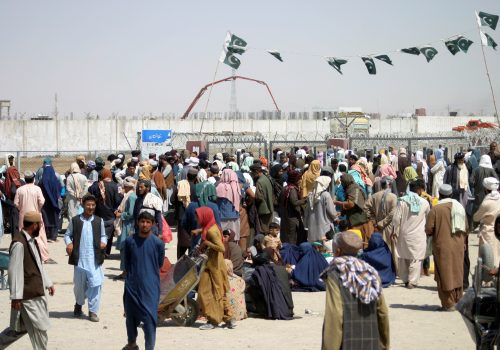On Wednesday, January 19, the Atlantic Council’s South Asia Center and the US-Afghan Women’s Council co-hosted a conversation on women’s role in the future of Afghanistan.
Speakers included:
- Belquis Ahmadi, Senior Program Officer, US Institute of Peace
- Amb. Shukria Barakzai, Former Ambassador of Afghanistan to Norway
- Hosna Jalil, Former Afghan Deputy Minister of Interior Affairs for Policy and Strategy
- Muqaddesa Yourish, Former Afghan Deputy Minister for Commerce and Industry
The conversation was moderated by Anita McBride, Executive in Residence for the Center for Congressional and Presidential Studies at American University. Rina Amiri, recently appointed US Special Envoy for Afghan Women, Girls, and Human Rights, offered opening remarks.
In the last twenty years, Afghanistan has undergone transformational changes stored in policies, institutions, and people. However, the Taliban has been quick to dissolve such advances. To build on the tremendous level of leadership among Afghans themselves, the international community must leverage, amplify, and give space to Afghan voices, says Rina Amiri. The Taliban must be held accountable—they must meet the conditions set forth by Western powers and some regional states, but current trends point to a looming humanitarian disaster. A key element of Amiri’s strategy will be creating such spaces and mechanisms for accountability, without putting Afghan women and girls at further risk.
Civil society groups and nongovernmental organizations (NGOs) played a strong role in Afghanistan’s development. Where are these institutions now and what can we do to protect them?
Between 2002 and August 2021, the bulk of humanitarian work, institutional reform, public advocacy, delivery of public services, rights advocacy, and government accountability work, among others, were undertaken by NGOs, civil society groups, and international organizations. However, what was once a vibrant and active civil society in the region has been forced into hiding and in other ways collapsed. Since coming to power, the Taliban has beaten and treated such actors as their enemies, by detaining, torturing, and murdering them—abuses and violations that occur with impunity. To protect and support women’s rights groups in particular, the international community must carefully assess the consequences of their negotiations, agreements, and compromises with the Taliban and its supporters. The group continues to commit atrocities and violate rights without repercussions, says Belquis Ahmadi.
For those not able to take to the streets, how can they show their resistance? How can they still help Afghanistan under such duress?
Women in Afghanistan have been silenced by the Taliban, and for all, taking the streets means they are putting their lives at risk. For those not able to do so, social media and communication with broader networks remains a tangible, serious way to reach others. To this end, it is critical that no organizations speak for women in Afghanistan; instead, “let them form a sentence and they will write a chapter about it,” says Amb. Shukria Barakzai. Like Ms. Ahmadi, Amb. Barakzai emphasizes the need to hold the Taliban accountable and to seek justice at the international level. Ultimately, women must be brought back into Afghan society. Given that the Taliban is not hiring women, it is the responsibility of NGOs and the international community to do so to usher in the re-incorporation of women into Afghan society.
What were the lessons learned from integrating women into the Afghan government and security forces that could be applied now as we look to the idea of women returning as political actors in the country?
Afghan women have not only been equally effective political actors, but they have been the most constructive – rather than destructive – political actors. All that was achieved before the collapse in 2021 was due in large part to the range of female political actors – whether lawmakers, ministers, leaders in civil society, journalists, or women who believed in peace. Furthermore, women were an asset to counter-corruption initiatives. Departments that included more women more effectively combated corruption, according to Hosna Jalil.
How have Afghan women fared in a changing Afghanistan?
The women of Afghanistan feel betrayed, particularly as they see international actors legitimize the Taliban through their actions. The international community has not given Afghan women the credit they deserve for gains made in the past twenty years, taking away women’s agency. It remains essential that women are included in meaningful ways in all discussions that affect them. International partners must fully acknowledge that Afghan women should be the leaders – not the followers – in the struggle for their rights. They walked the path themselves, and for this reason, the international community should take their cue from Afghan women trailblazers who have dedicated their lives to this struggle and who are experts in their fields.
A new chapter of resistance emerging in Afghanistan by civil society actors and women who are heading to the streets speaks to the nature of current protests and to the social transformation that has happened in the past twenty years. Women are calling for the rights of everyone, not just their own, and they must be recognized as the political actors they are. Until that happens, women’s rights will be viewed by the Taliban as a project of the West.

The South Asia Center is the hub for the Atlantic Council’s analysis of the political, social, geographical, and cultural diversity of the region. At the intersection of South Asia and its geopolitics, SAC cultivates dialogue to shape policy and forge ties between the region and the global community.
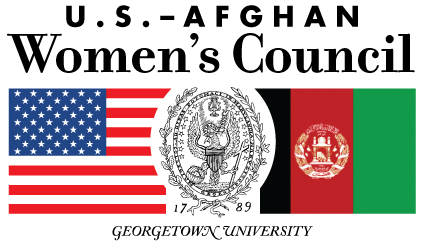
The U.S.-Afghan Women’s Council (USAWC) is a non-partisan public-private partnership that convenes governments, civil society and the private sector around the goal of supporting Afghan women and girl’s education, healthcare, economic empowerment and leadership.
Related content
Image: Afghan women shout slogans during a rally to protest against what the protesters say is Taliban restrictions on women, in Kabul, Afghanistan, December 28, 2021. REUTERS/Ali Khara
